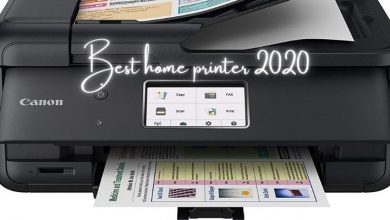What is the Actual Cost of an ERP System

What factors influence the cost of an ERP system? What are common mistakes companies make when evaluating ERP systems, and how can these be avoided? Find out the answers to these questions and more in this comprehensive guide on how much does an ERP system cost.
In this article, we’ll go over essential components of ERP cost, such as the factors that influence ERP system pricing, ERP pricing models, and how to design a software budget.
Share of Industries Using ERP Software in 2020
According to recent ERP statistics, ERP software solutions are most popular in the manufacturing business. The industry employs 33.66 percent of all ERP corporate users. The IT industry is a distant second, accounting for only 14.85 percent of the total. The financial services industry ranks third, with a 13.86 percent market share. These three accounts for 62.4 percent of the global market, which is expanding at a 0.7 percent annual rate.
Considering that such industries account for the majority of users, ERP solutions are typically tailored to their specific requirements. Furthermore, a high level of expertise usually requires a high level of customization effort. Highly personalized items typically necessitate a significant amount of effort. As a result, customized platforms tend to be more expensive.
The price of business software can range anywhere from free to several million dollars. If you’re wondering how much it costs to implement enterprise resource planning (ERP) software, read on. In today’s post, we’ll discuss what to consider when buying and implementing enterprise software, review three popular enterprise software solutions and talk about where you can find more information. Let’s get started!
Factors that influence ERP budget
You should understand that a large number of factors have to be taken into account when it comes to setting up or upgrading your company’s IT infrastructure. The budget for your Enterprise Resource Planning (ERP) implementation will depend on numerous factors, including The size of your company and industry – Smaller organizations tend to spend less on software than larger ones. The industry also has a huge influence on ERP budgets.
Here are some of the key components in planning the cost of ERP:
- Software licensing fees
- Additional servers and network hardware
- Data conversion and transfer to new ERP
- Customization if necessary
- Testing
- Training
- Vendor/consultancy support post-implementation
ERP System Pricing Models
There are five types of pricing models for ERP systems: Capital Expenditure (CapEx), Cash Expense (OpEx), Hybrid, Time & Materials, and Fixed Fee. If you don’t know which one is right for your business, it’s best to work with a consultant who can guide you through each model and help you choose what works best. In some cases, companies may not be aware that they have a choice in how they purchase their software; many do not realize that there are other options available besides buying software outright. A good solution will integrate seamlessly into your existing infrastructure while offering centralized data storage and tools to streamline processes across departments. When choosing an ERP software provider, it’s important to look at three things: Does their software integrate easily with my existing platform? Can I upgrade my current hardware so I can run new software?
Software Implementation Fees
When you’re working with a software consulting firm to implement your enterprise resource planning (ERP) software, that firm will typically charge a one-time implementation fee. Typically, larger implementations can run in the six figures. And yet it’s not uncommon for companies to implement their own software, though not always from scratch. No matter how you do it, implementation fees are common and average around $100,000–$400,000 for small organizations—and a lot more for bigger organizations. So if you’re just starting out on your journey to find an ERP system that meets your needs, don’t expect to walk into a store and see a shelf full of boxes labeled ERP. You’ll have lots of choices; you just need to sort through them all.
Conclusion
In conclusion, there are many different types of ERP software for small businesses that you can choose from. Choosing one is based on factors such as price, hardware, software, and how easy it is to use. After choosing a system you can easily integrate it into your business and begin to see financial benefits in little time at all. It really is worth spending time choosing your ERP system for small businesses because it will help your company run smoothly!





